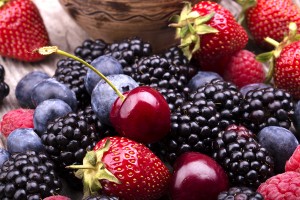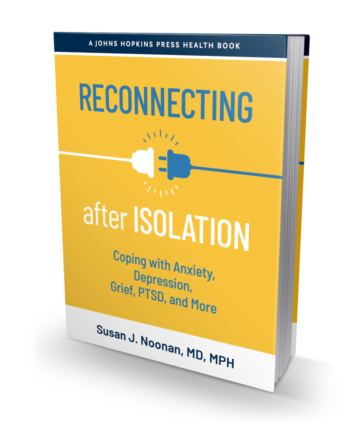Feed your body, feed your brain. It sounds trite, a bit of a cliché, but it is a very important concept. Your brain depends on the nutrients from a balanced diet in order to function optimally. This function includes managing your emotions and your mood disorder. Remember that one of the Basics of Mental Health is following a good nutrition plan: three balanced meals a day of healthy foods including lean protein, grains, fruits and vegetables, and a small amount of low fat dairy and fats. Eating well-balanced healthy meals is one way of taking care of yourself that actually makes a difference in your mental health. Skipping meals or eating poorly can make you feel irritable, fatigued and more depressed. Since you have control over what you eat, it is in your best interest to nourish your brain in the most beneficial way. You can read more about the importance of nutrition in depression in my book, Managing You depression: What you can do to feel better. Basic nutritional information is on the website www.choosemyplate.gov.
Eating well is really difficult to do when you are depressed, whether it is major depression or bipolar depression. Your appetite may be gone, and therefore your interest in food and nutrition takes on less importance. Favorite foods or a nice meal may not bring you the pleasure it once did. You may be so fatigued that grocery shopping and cooking are a major struggle. Skipping meals or choosing fast food then becomes an easy choice. You have to remind yourself that this is not healthy for you or your brain. You need the nutrients as fuel for your body and brain to operate at their best, and this is particularly important when you are dealing with a disorder such as depression. So, how do you do it? One way is to plan ahead and make the effort to shop for and cook healthy meals as part of your daily routine. Schedule it in and just do it anyway, even if you do not feel like it.
The summertime makes it a little bit easier because there are more fresh food choices that taste and smell better, which can be an incentive. This may get you out of the same old cooking rut. Grocery stores are full of local produce at this time of year. In addition, many cities and towns have freshly picked local fruits and vegetables sold at a farm stand or farmer’s market. Sometimes these stands are only open one day a week, so you have to check what is available in your neighborhood. Tomatoes always taste better fresh from the farm, as do vegetables such as corn on the cob or zucchini, and fruits such as blueberries, peaches or, later on, squash and fall apples. Take advantage of the fresh produce available in your area and be creative with your meals. Have fresh salads with low-calorie vinaigrette dressing, or cook fresh vegetables with grilled or broiled chicken or fish for dinner. Add blueberries to your morning cereal. Snack on a piece of fresh fruit instead of junk food in the afternoon. Savor the flavors that you get at this time of year. They taste so much better as compared to the hothouse tomatoes or fruits that have been shipped for two weeks to your grocery store in the winter. Enjoy it as a summer pleasure, and in so doing know that you are doing something good for yourself.
Stay well!

